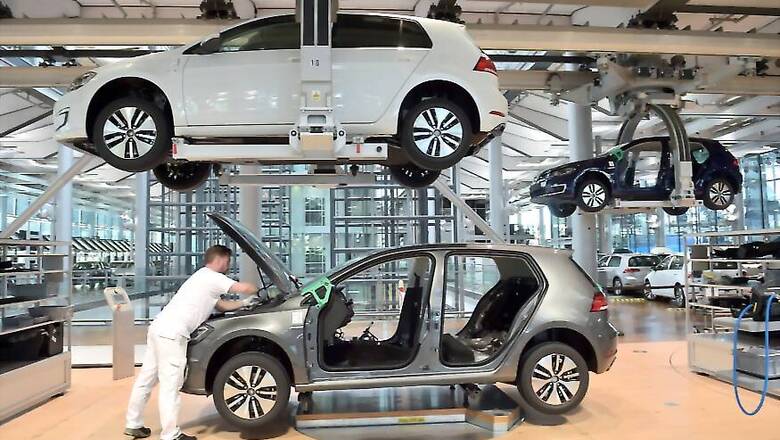
views
Carmakers built just 4.7 million cars in Germany in 2019, industry data showed, squeezing production to its lowest level since 1997 as US-China trade tensions sapped vital foreign markets. The powerful VDA carmakers' club said output had tumbled nine per cent year-on-year, blaming "weaker international demand" for the fall. The lower appetite from abroad comes on top of demanding technological change and tighter emissions restrictions complicating life for carmakers, long a pillar of Europe's largest economy.
With consumer spending buttressing the domestic market even as economic growth slowed, new registrations of cars on German roads booked an increase of five per cent, at 3.6 million. But auto exports from Germany to the rest of the world fell even more sharply than production, tumbling 13 per cent to 3.5 million. "The fall in car production means Germany continues to lose significance in the global auto industry," said Ferdinand Dudenhoeffer of the Center Automotive Research.
Around the world, car markets have been battered by the effects of the American trade conflict with China. Last year saw carmakers complain that falling global demand is eating into their business just as massive investments are needed in research and development. Companies are pumping cash into high-tech projects like automated driving, and switching focus to hybrid or all-electric vehicles from internal combustion engines as they race to meet new emissions limits.
And structural factors threatening the auto firms' pride of place in the German economy are also at work. Where in 1998 close to 12 per cent of all cars sold worldwide were produced in Europe's powerhouse, the share has shrunk to below six per cent in 2019, Dudenhoeffer said. Meanwhile, electric motors require less manpower to assemble than their hydrocarbon-burning predecessors, threatening some of the roughly 800,000 car industry jobs in Germany.
Also Monday, figures from the KBA transport authority showed SUVs overtaking compact cars as the most popular class of models on the domestic market. Many SUVs are built not in Germany but in factories operated by the country's multinational carmakers overseas. That, in turn, makes the companies more vulnerable to upsets in international trade. In a study published in December, Dudenhoeffer forecast that German car production would begin growing again in 2021 after bottoming out this year.

















Comments
0 comment